Search Images
Browse Content (p. 654)
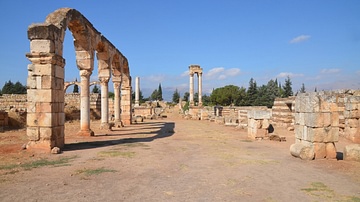
Image
Anjar, Lebanon
The ancient city of Anjar is the sole Umayyad settlement in Lebanon, founded during the 8th century CE Umayyad caliphate. It is located in the Bekaa Valley, 47 kilometres (29 miles) south of Baalbek.

Image
Temple of Bacchus, Baalbek
The so-called Temple of Bacchus at Baalbek (modern-day Lebanon). Recently redated to the 3rd century CE, it may have been used for the imperial cult, in addition to the veneration of other gods such as Bacchus and Venus.
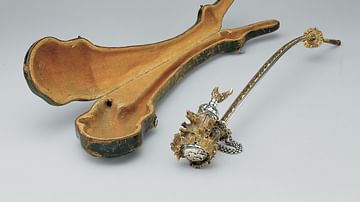
Image
Tobacco Pipe
Tobacco pipe with case made of silver, deer antler, horn, and leather, from Southern Germany, c. 1740 CE.
Metropolitan Museum of Art, New York.
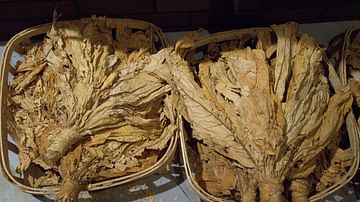
Image
Dried Tobacco
Dried tobacco. Scenes from North Carolina tobacco country.
Tobacco Farm Life Museum, Kenly, NC
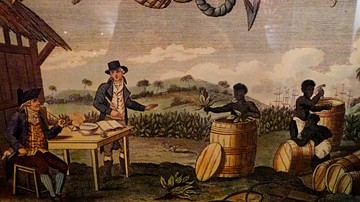
Image
Tobacco Plantation
Tobacco Plantation, detail of a print by Richard H. Laurie, 1821 CE.
Fort McHenry, Baltimore, Maryland.
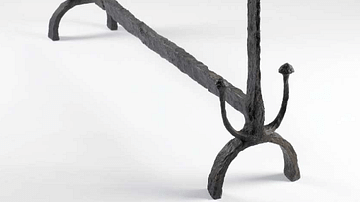
Image
Celtic Fire-Dog
A Celtic fire-dog excavated at Welwyn, Hertfordshire, England. Iron, 50-25 BCE. Height: 96.5 cm. Fire-dogs were likely used for spit-roasting meat at Celtic feasts. (British Museum, London)
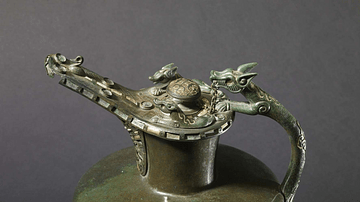
Image
Detail of a Basse-Yutz Flagon
Detail of one of the Basse-Yutz Flagons, Celtic vessels inspired by Etruscan work and used for pouring wine. Lorraine region, France. Copper alloy with coral and enamel inlay. 420-360 BCE. Height: 39.6 cm. (British Museum, London)
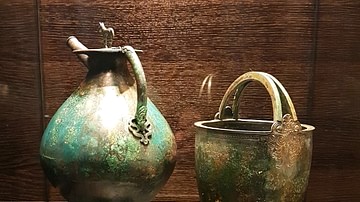
Image
Celtic Wine-Serving Vessels
Celtic vessels used for serving wine. Found in Waldalgesheim, western Germany. 330-320 BCE. (Rheinisches Landesmuseum, Bonn, Germany)
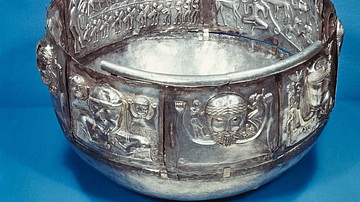
Image
The Gundestrup Cauldron
The Gundestrup Cauldron was found in Denmark in 1891 CE but was produced in the Balkans. Gilded silver, likely 1st century BCE. The designs show gods and warriors inspired by the Celtic culture. (National Museum of Denmark, Copenhagen)
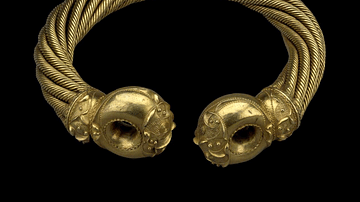
Image
Snettisham Great Torc
The Snettisham Great Torc. Part of the Snettisham burial hoard found in Norfolk, England. Celtic, gold alloy, 150-50 BCE. Diameter 56 cm. (British Museum, London)